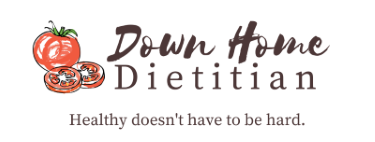Since I was a little stuck with progress on returning to my previously normal weight last month, I decided to start using a food tracker for the month of March just to make sure I wasn’t missing my nutrition goals accidentally. Food trackers can range anywhere from a pen and notebook to wearable devices that connect to apps and websites with huge searchable food databases. Tracking the food you eat has some major pros and major cons…and it’s important to understand both before deciding if (and what kind of) food tracking is right for you.
Pros:
- Accountability – The primary function of tracking is accountability for what you eat. By tracking, you can see what you have eaten compared to your recommendations, and keep yourself in check throughout the day. If you have a day that is “off the rails” you can easily see it, notice it, and adjust or monitor a little closer in the coming days (by the way, you don’t have to feel guilty – that’s not the point!).
- Awareness – Tracking causes you to pay more attention to the actual contents of what you eat. Websites, apps, and food labels all provide information on calories, fat, saturated fat, carbohydrates, sodium, and protein – all of which may be useful depending on your health goals. Most of my clients find some surprises when they start tracking (I never knew that had so many calories and so much saturated fat! I thought that food was healthy!). Tracking offers a learning opportunity that will help support you in lifelong wellness as you learn which foods fit best in your plan.
- Convenience – One study found that those who used a smart phone tracking app that assisted with goal setting and behavior change were more likely to meet their goals and, in this case, lost more weight than those using paper and pen or a website to track.1
Cons:
- Tedium/Obsessiveness – Particularly for those who are not so detail-oriented (or those with a history of eating disorders), food trackers can be more of a hindrance than a help. Tracking every detail can become overwhelming and exhausting, and people who are overwhelmed and exhausted are less likely to make good health choices or reap the benefits of tracking. If you fit in these categories, you’ll likely find more benefit using strategies other than food tracking.
- Inaccuracy – Food trackers are only as good as their accuracy and the honesty of the person using them. If you’re going to track at all, commit to being thorough and including everything you eat or drink – don’t forget condiments, cooking oils, seasonings, and beverages! Studies have found paper-based and online food tracking to be equally accurate.2
- Lack of Evidence-Based Support and Resources – Two studies of food tracking apps discovered that most apps do not assist with evidence-based skills that promote success like problem-solving, stress reduction, and improving motivation.3, 4 If you’re using a tracker, be sure to seek out other support for these important areas.
Many people I work with find using a food tracker beneficial, but also grow weary of the “cons” listed above. I encourage them to consider being flexible in their use of food trackers. Often, one can glean the benefits of awareness and accountability by tracking a few days per week or one week per month, and those benefits will often carry over for the remainder of the time. If you decide to do this, set a concrete goal of what days or how many you will track (example: I will track Mondays, Wednesdays, and Saturdays or I will track the first week of every month).
If you’re looking for ideas for food trackers to try, consider My Fitness Pal, Lose It, or Google “food journal” if you prefer pen and paper.
- http://www.jmir.org/2013/4/e32/?
- http://www.andjrnl.org/article/S2212-2672(14)01219-2/abstract
- http://www.ajpmonline.org/article/S0749-3797(13)00426-1/abstract?cc=y=
- https://link.springer.com/article/10.1007/s13142-011-0076-5




